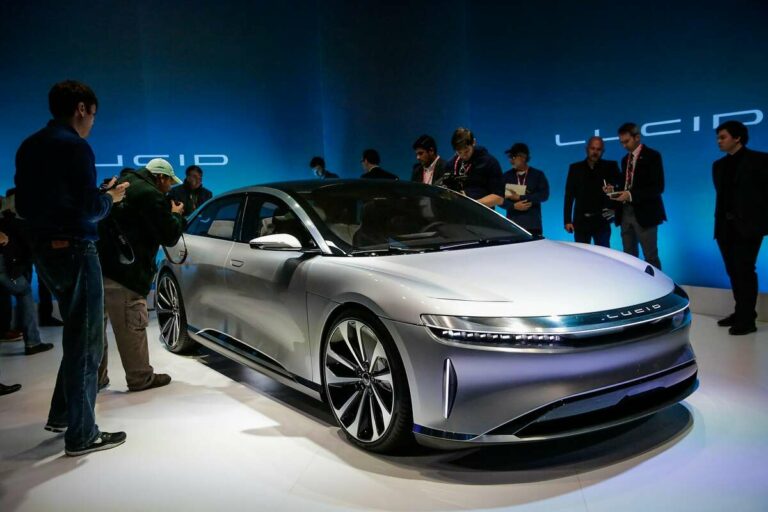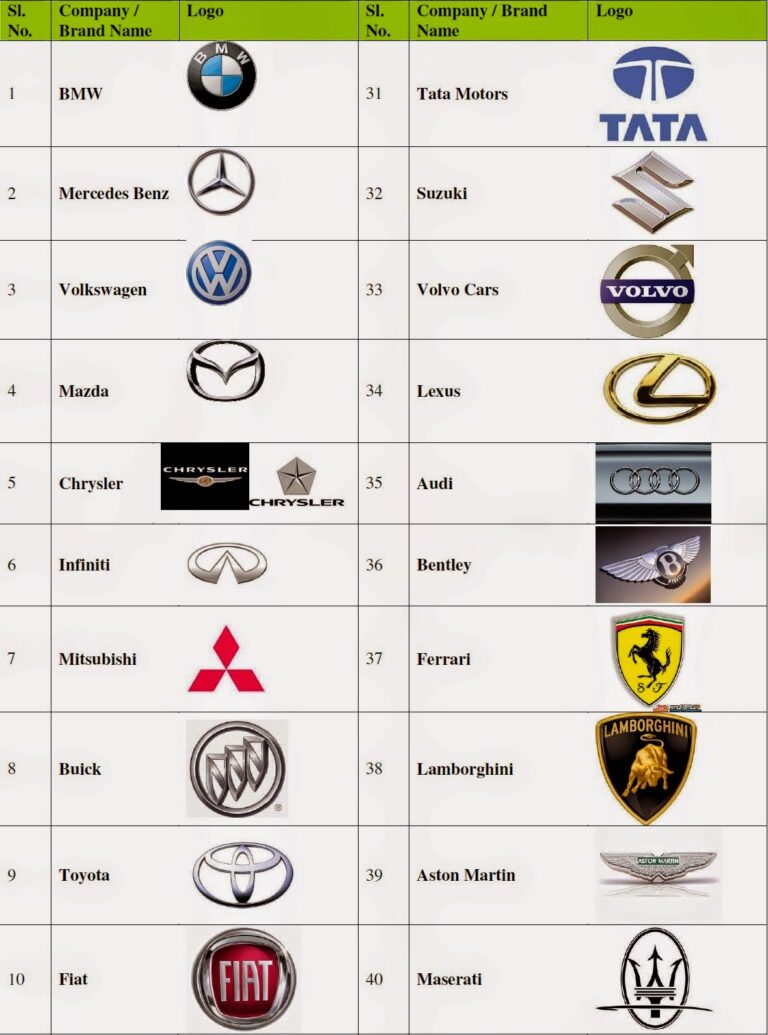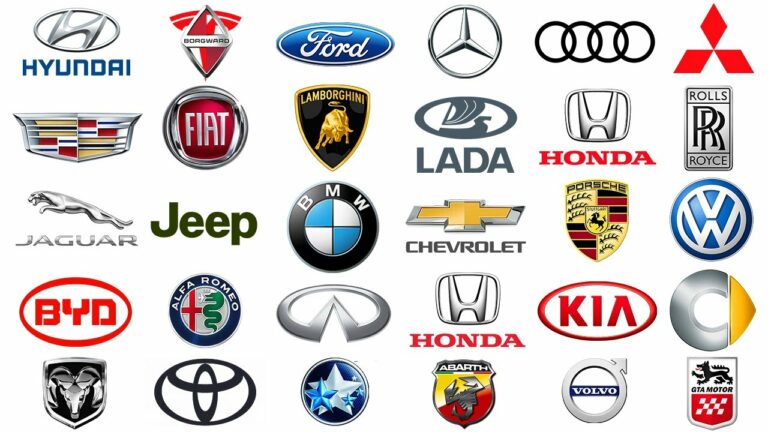Whats The Best Car Brand To Buy? Navigating the Automotive Landscape
Whats The Best Car Brand To Buy? Navigating the Automotive Landscape cars.truckstrend.com
Choosing a new car is one of the most significant financial decisions many people make, second only to buying a home. With hundreds of models and dozens of brands vying for your attention, the question "Whats The Best Car Brand To Buy?" isn’t just common; it’s fundamental. However, the answer is rarely a simple one-word response. The "best" car brand isn’t a universal truth; it’s a highly personal conclusion, deeply rooted in individual needs, priorities, lifestyle, and budget.
This comprehensive guide will demystify the process, helping you understand what factors define "best" for you, explore the strengths of leading car brands across various categories, and provide actionable insights to navigate the automotive market with confidence. By the end, you’ll be equipped to make an informed decision that truly aligns with your specific requirements.
Whats The Best Car Brand To Buy? Navigating the Automotive Landscape
Understanding "Best": Defining Your Priorities
Before you can even begin to think about brands, you must first define what "best" means to you. Is it unwavering reliability? Cutting-edge technology? Blistering performance? Supreme luxury? Or perhaps an unbeatable price-to-value ratio? Your priorities will dictate which brands rise to the top of your personal list.
Consider the following key aspects:
- Budget (Purchase & Ownership): This is often the primary filter. Beyond the sticker price, consider insurance costs, fuel efficiency, routine maintenance, and potential repair costs. A cheaper car might cost more in the long run if it’s unreliable or fuel-thirsty.
- Reliability & Durability: Do you want a car that will simply run for years with minimal fuss and expense? Brands known for their longevity and low repair rates will be paramount.
- Safety: For many, especially families, safety ratings, advanced driver-assistance systems (ADAS), and robust construction are non-negotiable.
- Performance & Driving Dynamics: Are you looking for exhilarating acceleration, precise handling, or a smooth, comfortable ride? Your preference here will narrow down options significantly.
- Technology & Features: Do you crave the latest infotainment systems, connectivity options, autonomous driving features, or high-end audio?
- Resale Value: If you plan to upgrade in a few years, a brand with a strong reputation for holding its value will save you money in the long run.
- Environmental Impact & Fuel Efficiency: With rising fuel prices and environmental concerns, hybrid, plug-in hybrid (PHEV), and electric vehicles (EVs) are becoming increasingly popular.
- Lifestyle & Practicality: Do you need space for a growing family, cargo for hobbies, off-road capability, or a compact car for city driving?
- Brand Reputation & Prestige: For some, the badge on the hood signifies status, craftsmanship, or a certain level of customer service.
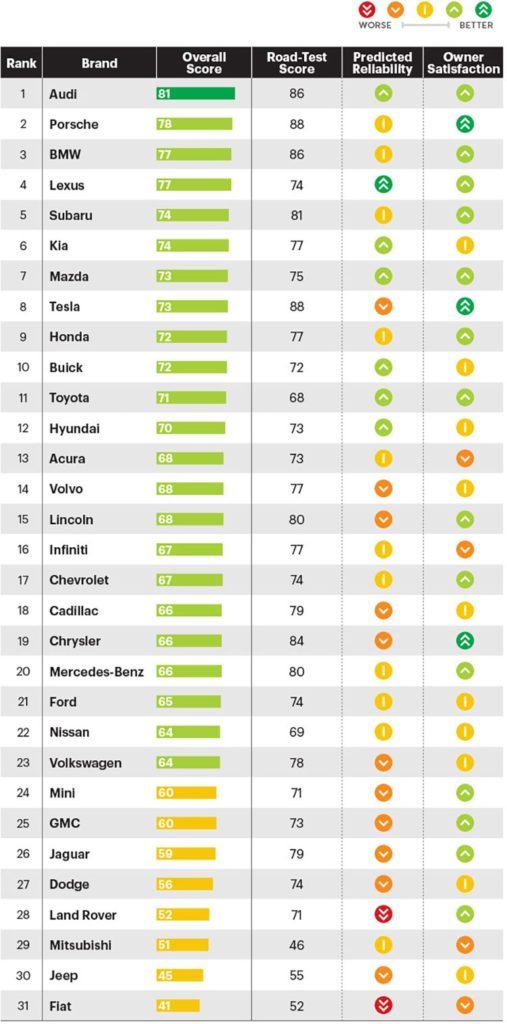
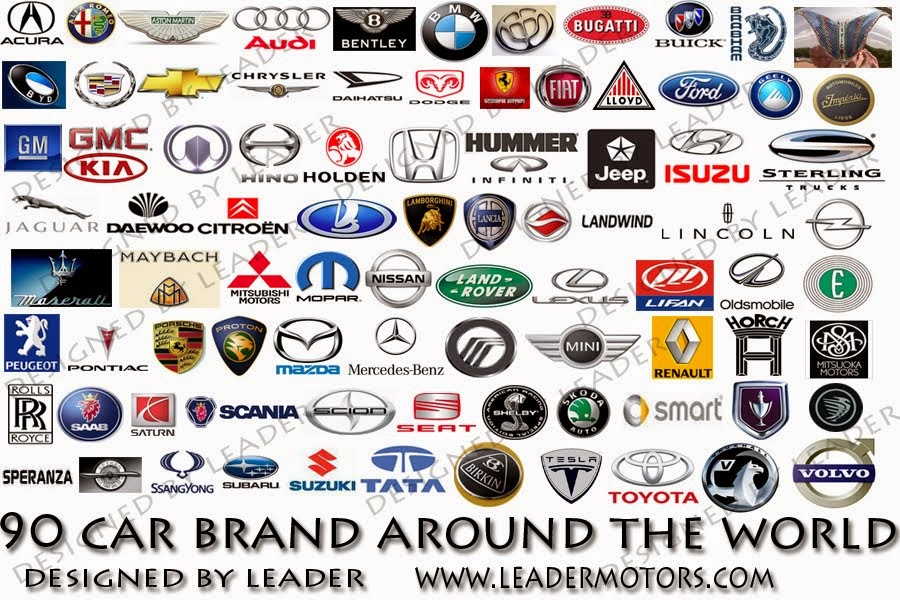
Top Contenders Across Key Categories: Where Brands Excel
Instead of naming a single "best" brand, it’s more helpful to look at which brands excel in specific areas, aligning with different buyer priorities.
1. For Unmatched Reliability & Value: Toyota, Honda, Mazda, Subaru, Kia, Hyundai
- Why they’re "Best": These brands consistently top reliability surveys (J.D. Power, Consumer Reports) and offer excellent long-term ownership value. Their vehicles are known for their longevity, low maintenance costs, and strong resale values. Kia and Hyundai, in particular, offer segment-leading warranties.
- Ideal For: Buyers prioritizing peace of mind, low total cost of ownership, and dependable transportation.
- Considerations: While improving significantly, they might not offer the same level of luxury or cutting-edge performance as premium brands.
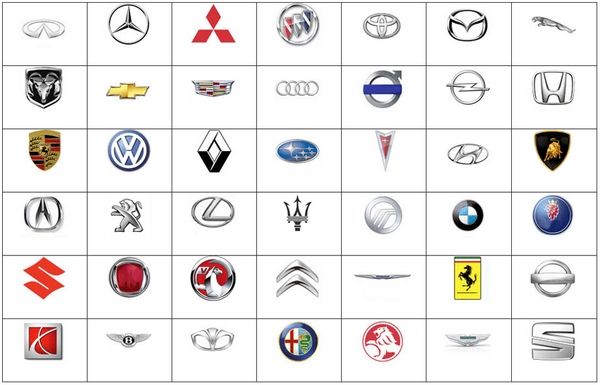
2. For Balanced Mainstream Excellence: Ford, Chevrolet, Nissan, Volkswagen
- Why they’re "Best": These brands offer a broad range of vehicles from compact cars to full-size trucks and SUVs, often blending practicality with solid performance and a good feature set. Ford and Chevrolet dominate the truck market, while Volkswagen brings European driving dynamics to the mainstream.
- Ideal For: Buyers looking for versatile, all-around vehicles that can handle various tasks and provide a comfortable daily driving experience.
- Considerations: Can sometimes be seen as less distinctive than premium brands, and reliability can vary more by model.
3. For Premium Luxury & Comfort: Lexus, Acura, Volvo, Genesis
- Why they’re "Best": These brands, often the luxury divisions of mainstream manufacturers (Toyota-Lexus, Honda-Acura, Hyundai-Genesis), offer refined interiors, smooth rides, advanced safety features, and excellent customer service without always demanding the highest premium. Volvo is a safety pioneer, and Genesis offers incredible value in the luxury segment.
- Ideal For: Buyers seeking a sophisticated driving experience, high-quality materials, advanced technology, and a focus on comfort and safety.
- Considerations: Higher purchase price and potentially higher maintenance costs than non-luxury counterparts.
4. For Performance & Driving Dynamics: BMW, Audi, Mercedes-Benz, Porsche, Cadillac
- Why they’re "Best": These German (and one American) marques are synonymous with exhilarating performance, precise engineering, powerful engines, and a truly engaging driving experience. They often lead in automotive innovation and offer a high degree of prestige. Porsche stands alone for pure sports car excellence.
- Ideal For: Enthusiasts who prioritize driving pleasure, cutting-edge technology, and a strong brand image.
- Considerations: Significantly higher purchase prices, more expensive maintenance and parts, and sometimes a stiffer ride.
5. For Cutting-Edge Electric & Innovation: Tesla, Rivian, Lucid
- Why they’re "Best": These brands are at the forefront of electric vehicle technology, offering impressive range, rapid acceleration, advanced driver-assist systems, and a unique software-centric approach. Tesla remains the market leader in sales and charging infrastructure.
- Ideal For: Early adopters, tech enthusiasts, and environmentally conscious buyers looking for the latest in EV performance and innovation.
- Considerations: Premium pricing, reliance on charging infrastructure, and a design philosophy that might not appeal to everyone.
6. For Off-Road & Rugged Capability: Jeep, Land Rover, Ram
- Why they’re "Best": When the pavement ends, these brands truly shine. Jeep is legendary for its off-road prowess, Land Rover combines luxury with extreme capability, and Ram offers powerful, durable trucks for heavy-duty work and towing.
- Ideal For: Adventurers, those living in challenging terrains, or buyers needing serious towing and hauling capacity.
- Considerations: Often less fuel-efficient, can have a rougher ride on pavement, and premium off-roaders come with a high price tag.
Key Factors to Consider When Choosing
Once you have a few brands in mind, dive deeper into these critical areas:
- Total Cost of Ownership (TCO): Look beyond the purchase price. Factor in fuel costs, insurance premiums, maintenance schedules, common repair costs, and depreciation. Websites like Edmunds.com or Kelley Blue Book (KBB.com) offer TCO calculators.
- Safety Ratings: Always check ratings from organizations like the Insurance Institute for Highway Safety (IIHS) and the National Highway Traffic Safety Administration (NHTSA). Look for "Top Safety Pick+" awards.
- Reliability Data: Consult independent surveys from J.D. Power, Consumer Reports, and RepairPal to gauge long-term dependability.
- Warranty & After-Sales Support: Understand the bumper-to-bumper and powertrain warranty terms. Research the brand’s dealership network and reputation for customer service.
- Test Drive: Never buy a car without a thorough test drive. Pay attention to comfort, visibility, handling, acceleration, braking, and how the technology interfaces with you. Drive on various road types.
- Resale Value: Brands like Toyota, Honda, and Subaru generally hold their value well, which can save you money when it’s time to sell or trade in.
How to Research and Compare Car Brands
- Online Reviews & Resources:
- Consumer Reports: Excellent for unbiased reliability data and owner satisfaction.
- J.D. Power: Provides quality, dependability, and customer satisfaction studies.
- Edmunds, Kelley Blue Book (KBB), Car and Driver, MotorTrend: Offer professional reviews, comparison tools, and pricing information.
- Owner Forums/Groups: Get real-world insights from current owners on reliability, common issues, and ownership experience.
- Dealership Visits: Experience the cars in person, sit inside, check cargo space, and ask questions. Don’t feel pressured to buy.
- Rental Cars: If possible, rent a model from a brand you’re considering for a few days to experience it in your daily routine.
Common Pitfalls to Avoid
- Buying Purely on Brand Name/Status: Don’t let prestige overshadow practicality or budget.
- Ignoring Total Cost of Ownership: The purchase price is just the beginning.
- Skipping the Test Drive: You wouldn’t buy shoes without trying them on; don’t buy a car without driving it extensively.
- Not Checking Safety Ratings: Your safety and that of your passengers should be paramount.
- Falling for High-Pressure Sales Tactics: Do your research beforehand, stick to your budget, and be prepared to walk away.
Practical Advice and Actionable Insights
- Prioritize, Prioritize, Prioritize: List your top 3-5 non-negotiable features or characteristics.
- Set a Realistic Budget: Include all ownership costs, not just the sticker price.
- Research Relentlessly: Use all available online and offline resources.
- Test Drive Multiple Models from Different Brands: Even if you think you know what you want, you might be surprised.
- Don’t Rush the Decision: Take your time, sleep on it, and ensure it feels right.
Concluding Summary
The quest for "Whats The Best Car Brand To Buy" is a personal journey, not a universal destination. The "best" brand for you is the one that most perfectly aligns with your budget, lifestyle, priorities, and long-term expectations. By meticulously defining your needs, thoroughly researching options across various categories, and taking advantage of test drives, you can confidently navigate the vast automotive landscape. Remember, an informed decision today leads to years of satisfaction on the road tomorrow.
Table: Car Brand Value Proposition Overview
| Brand Category (Focus) | Example Brands | Typical Price Positioning | Key Strengths (Why they might be "Best") | Considerations/Trade-offs |
|---|---|---|---|---|
| Ultimate Reliability & Value | Toyota, Honda, Mazda, Subaru, Kia, Hyundai | Entry-Level to Mid-Range | Legendary reliability, low running costs, high resale value, practical | Less focus on cutting-edge luxury or raw performance |
| Balanced Mainstream Excellence | Ford, Chevrolet, Nissan, Volkswagen | Mid-Range | Broad model range, good all-rounders, strong utility (trucks/SUVs) | Can be less distinctive than luxury brands |
| Premium Luxury & Comfort | Lexus, Acura, Volvo, Genesis | Mid-High Range | Refined interiors, smooth rides, strong safety, excellent customer service | Higher initial cost, potentially higher maintenance than value brands |
| Performance & Driving Dynamics | BMW, Audi, Mercedes-Benz, Porsche, Cadillac | High-End | Engaging driving experience, powerful engines, advanced technology, prestige | Higher purchase price, often higher maintenance/insurance |
| Cutting-Edge Electric & Innovation | Tesla, Rivian, Lucid | High-End | Leading EV technology, long range, rapid charging, unique software features | Premium price, charging infrastructure dependency, specific design ethos |
| Off-Road & Rugged Capability | Jeep, Land Rover, Ram | Mid-High Range | Unmatched off-road prowess, durability, strong towing (for trucks) | Often lower fuel economy, more utilitarian interiors |
Note: "Typical Price Positioning" refers to the general segment where the brand’s models are usually found, not specific model prices, which vary widely.
Frequently Asked Questions (FAQ)
Q1: Is there truly one single "best" car brand for everyone?
A1: No, absolutely not. The "best" brand is subjective and depends entirely on an individual’s specific needs, budget, priorities (e.g., reliability, luxury, performance, safety), and lifestyle.
Q2: Which car brand is the most reliable?
A2: While reliability ratings can fluctuate slightly year by year, brands like Toyota, Lexus, Honda, Mazda, and Subaru consistently rank at the top for long-term dependability and low repair costs in various independent studies (e.g., J.D. Power, Consumer Reports). Kia and Hyundai have also made significant strides and offer excellent warranties.
Q3: Are luxury car brands more expensive to maintain?
A3: Generally, yes. Luxury brands often use more specialized parts, require more specific maintenance procedures, and have higher labor rates at dealerships, leading to higher overall maintenance and repair costs compared to mainstream brands.
Q4: How important is resale value when choosing a car brand?
A4: Very important, especially if you plan to sell or trade in your vehicle within 3-5 years. A brand with strong resale value means you’ll lose less money to depreciation over your ownership period, effectively lowering your total cost of ownership. Toyota, Honda, Subaru, and Lexus are typically strong performers in this area.
Q5: Should I buy an electric vehicle (EV) from a specific brand?
A5: If you’re considering an EV, brands like Tesla are leaders in battery technology, charging infrastructure (Supercharger network), and software integration. However, traditional automakers like Hyundai, Kia, Ford, and General Motors are rapidly expanding their EV lineups with competitive options. Research range, charging speed, and available charging infrastructure in your area.
Q6: How can I find out the safety ratings for a specific car brand or model?
A6: You can find comprehensive safety ratings from the Insurance Institute for Highway Safety (IIHS) at IIHS.org and the National Highway Traffic Safety Administration (NHTSA) at NHTSA.gov. Both organizations conduct rigorous crash tests and evaluate safety features.

